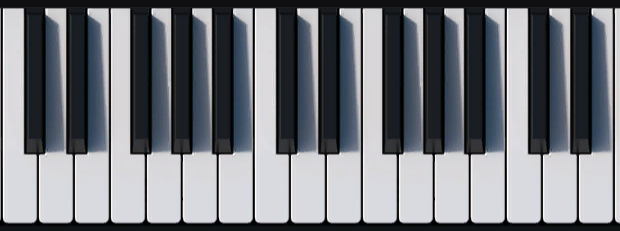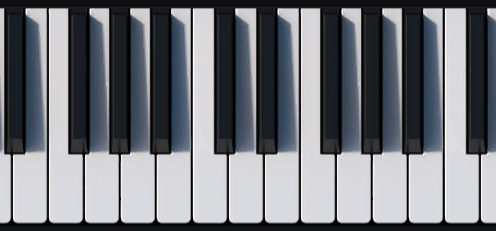A piano simulator with a phase vocoder that changes the pitch of your input file.
This project is the very first personal project that I have tried. In my opinion, programs should be fun and interactive, rather than rigid commands. This should be really true in learning more about audio, especially computing audio! Transforming complex geometry into a platform for auditory enjoyment and creativity was the original motivation to do this project.
This program has two main parts. A GUI shows a piano that allows you to control it using your keyboard. And a phase vocoder that changes the pitch of your input file and maps different pitches to each piano key.
The project idea is inspired by a famous MIKU Fan website that, given basic but rhythmic background music, you can control the virtual singer, “MIKU”, by using the mouse or keyboard keys, to sing a single word: “la”. The exciting part is that, for every click, the “la” becomes various pitches. By quickly clicking on the web page or tapping the keyboard, “la” with different pitches can actually form a beautiful song! Here is the link to the website, and have a try! https://aidn.jp/mikutap/
There is indeed a huge gap between PyGame and Unity, Unreal and other game engines in the richness of functions, the efficiency of the compiler (Frame Rate), and the completion of the final game. But it is more important for a producer who is new to software development to express his creative content, and PyGame is a good draft. Its lightweight engine design also allows users to run the game with minimal cost. I would like to call it a good try. The game is fully open source on my personal GitHub website.
With the experience of developing this game, I am working on developing my own VR countryside-style RPG game. This time the engine is based on the Oculus platform and is an immersive VR game powered by Unity. The Demo is expected to be released around late June.

